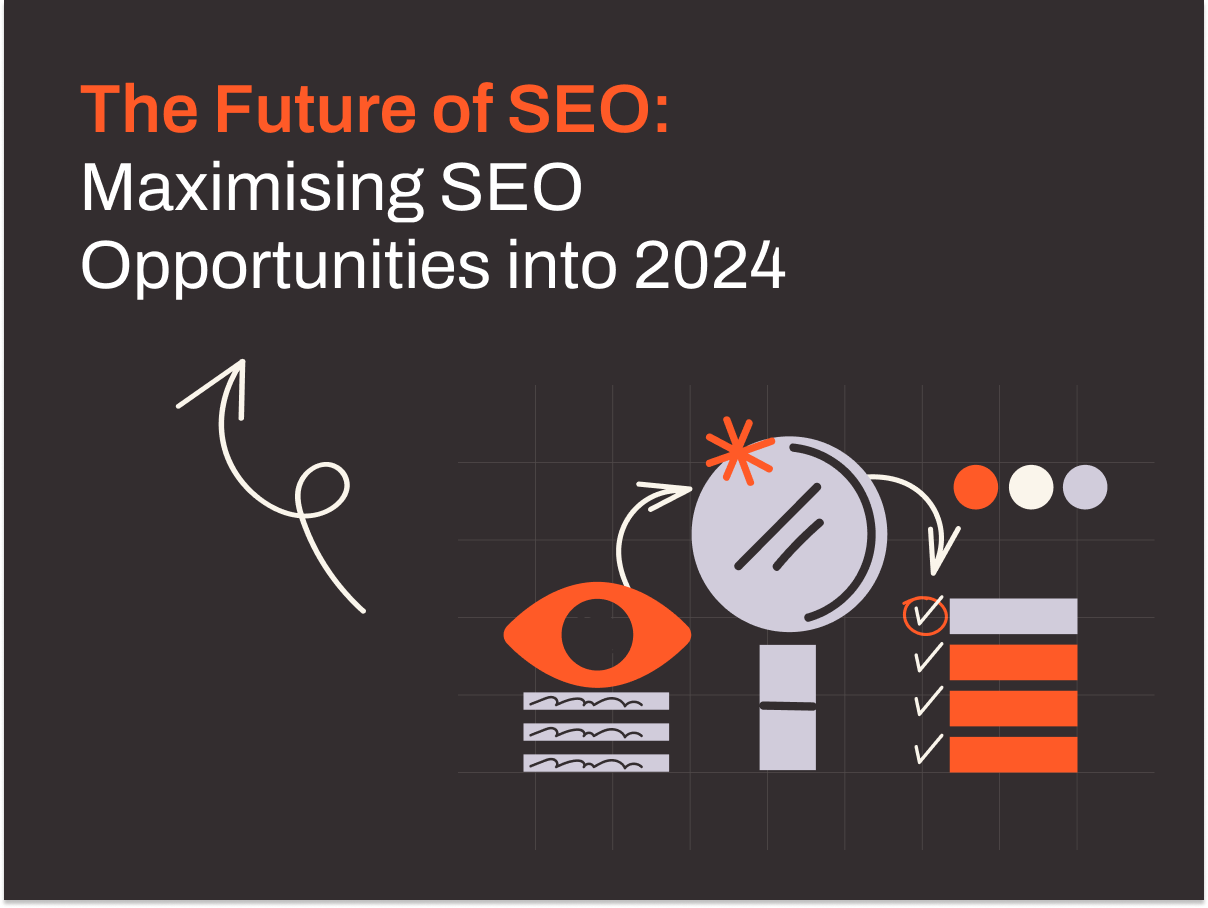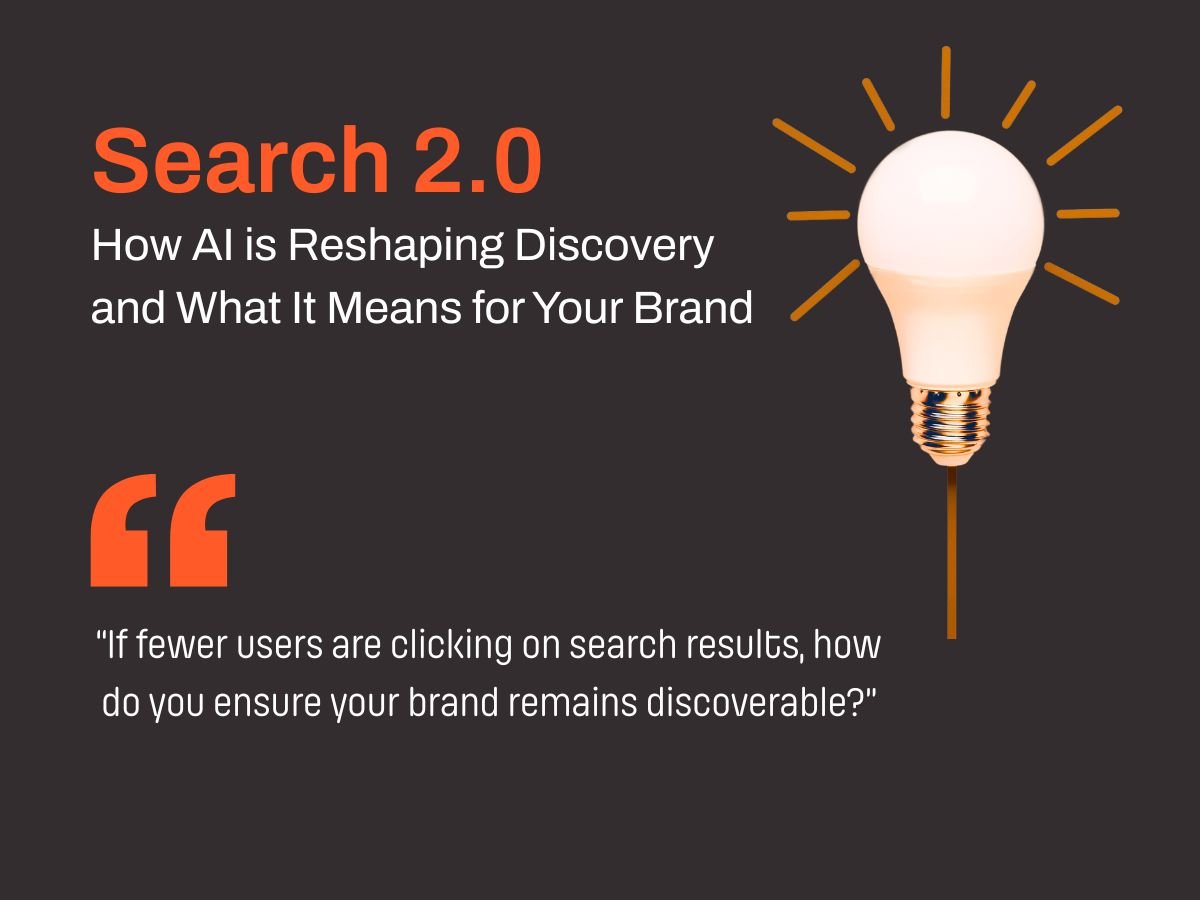What does the future of SEO look like? In the ever-evolving landscape of digital marketing and search engine optimisation, the dynamics of achieving a prominent online presence are constantly shifting. 2023 is undergoing the biggest technological shift since the smartphone with the rise of generative AI and the change in strategy for SEO is no different.
Looking ahead to 2024, we anticipate a battle for valuable SERP real estate, with a focus on both paid and organic channels. This will mean prioritising conversions and revenue over rankings and impressions. Data-driven decision-making will continue to play a crucial role, as businesses harness more powerful analytical tools to refine their strategies and work collaboratively with other marketing channels.
Does SEO have a future?
The short answer is yes. SEO isn’t dead no matter how many times some variation of that phrase becomes a focal point of the industry conversation again. What is officially on life support is the value of the shadowy SEO specialist buying inordinate amounts of backlinks and keyword stuffing to artificially inflate keywords and traffic but not relating work back to business goals.
The pandemic emphasised the need for companies to apply more focus to their websites as the face of the business. This also allowed SEO to come more into the mainstream as C-suites needed to understand its place in their overall digital marketing plans. This made SEO professionals step out of the shadows and tie their strategies to business KPIs rather than vanity metrics.
2023 trends in SEO
Generative AI in content SEO
At the forefront of the SEO revolution lies the integration of generative AI. This technology, often powered by deep learning models like OpenAI’s GPT-3.5, has transformed content creation by enabling the generation of human-like text. Generative AI can craft compelling blog posts, product descriptions, meta content, and more, significantly reducing the time and effort traditionally spent on manual content creation.
Personalised content experiences
Generative AI has empowered SEO professionals to personalise content experiences like never before. By analysing user data and behaviour, AI-driven systems can tailor content to individual preferences, leading to higher engagement and improved user satisfaction. Personalisation not only enhances user experiences but also contributes to better SEO performance by reducing bounce rates and increasing time spent on pages.
Embracing algorithmic evolution
The benefits of these capabilities are not limited to content creation. Natural Language Processing (NLP) techniques, underpinned by AI, have enabled search engines to decipher the context of content more accurately. This advancement in NLP has led to the rise of semantic search, where search engines understand the meaning behind queries rather than relying solely on exact keywords. With search engines becoming more intuitive and user-centric, today’s SEO landscape is a far cry from the keyword-stuffed past and mechanical link-building strategies. This is working to completely reshape SEO strategies with how content is created, optimised, and ranked.
The continued importance of matching user intent
Understanding user intent is the cornerstone of modern SEO. Search engines aim to provide users with results that precisely match their needs. This means that ranking high isn’t solely about keyword frequency; it’s about addressing what users are searching for. To do this effectively, in-depth keyword research is indispensable. By grasping the language users use and the questions they ask, businesses can tailor their content to satisfy specific user needs.
Content is king, but context is queen
Quality content has long been hailed as the kingpin of SEO. Yet, in this new era, context plays an equally vital role. Your content must resonate with your audience and provide comprehensive information on the topic. Diving deep into subjects, offering insights, and presenting unique perspectives are crucial to becoming an authority in your domain. On top of this, there needs to be a lens on what users need from you from a commercial and transactional perspective. Mass-produced informational content for the sake of it isn’t likely to produce the same results as it used to due to users getting those answers from other sources and zero-click search.
Future of the SEO industry into 2024
Limited availability of organic SERP real estate
What we are going to see for the back half of this year and what will top the 2024 SEO trends will be about the battles for what places on a SERP are worth fighting for across Paid and Organic channels. If Google’s Search Generative Experience (SGE) looks like it did presented in the I/O conference then impressions and clicks for any informational queries are going to drop drastically and the credit and value for well-made all-around content will follow it. The importance is going back to matching the user intent and really understanding what keywords get people to your site that result in conversions then making that journey onsite as easy and painless as possible
Data-driven decision making
In the future of SEO and the lives of SEO professionals, data reigns supreme. Utilising analytical tools to track user behaviour, traffic patterns, and engagement metrics provides invaluable insights. By understanding what works and what doesn’t, businesses can refine their strategies for maximum impact. That means that the SEO tactics used have to be less about rankings and impressions and more about conversion rates and revenue. The biggest change for a lot of SEO professionals will be around working in tandem with other marketing channels to find and then communicate the most effective ways to strategise holistically.
The paradox of efficiency and the meaning of an expert
One of the side effects of the rise of generative AI has meant a drastic reshaping of the traditional concept of an expert in the field of digital marketing. On one hand, the efficiency and automation enabled by generative AI have streamlined research, content creation, optimisation, and even data analysis, allowing anyone to achieve more in less time. However, this very efficiency has led to a shifting definition of expertise.
While deep technical knowledge and manual optimisation were once the hallmarks of an SEO expert, the proficiency to navigate and harness the power of generative AI has become at least equally crucial. The SEO career future will see a need to possess a unique blend of traditional SEO wisdom and the ability to leverage AI-driven tools to craft personalised, and contextually relevant content that resonates with both search engine algorithms and human audiences.
This paradox underscores the transformative impact of generative AI on the SEO landscape, as it challenges professionals to adapt and evolve their existing skill sets while being able to stay up to date with technological advancements ahead of what has been made easily accessible to everyone.
Conclusion
The future of SEO is a dynamic landscape that continues to evolve and as we get closer to 2024 it is important to have strategies that will work with these changes rather than against them. While some may have questioned the relevance of SEO, it’s clear that SEO is not dead; rather, it’s transforming into a more sophisticated and strategic discipline that demands more agile, data-driven strategies and a fusion of traditional wisdom with AI-powered innovation. SEO professionals will continue to play a vital role in helping businesses achieve their digital marketing goals and stay relevant in an ever-changing online world.











